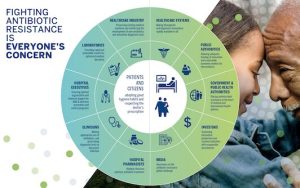Managing Anxiety in Older Adults: A Comprehensive Guide

A group of multidisciplinary leading subject matter experts across Canada in the field of anxiety disorders in older adults and a lived experience group have collaborated with the Canadian Coalition for Seniors Mental Health (CCSMH) to develop the first-ever clinical guidelines for anxiety in older Canadians.
Canadian health care providers now have access to clinical tools and resources they need to better support older adults at risk of or living with anxiety. Produced by the CCSMH and led by geriatric psychiatrist Dr. Andrea Iaboni (associate professor at the University of Toronto) and psychologist Dr. Sébastien Grenier (associate professor at the Université de Montréal), the Canadian Guidelines for the Assessment and Treatment of Anxiety in Older Adults provides evidence-based recommendations for the prevention, assessment, diagnosis and treatment of anxiety in seniors. Older adults will also benefit from a variety of resources, including this pamphlet about anxiety in older adults developed to inform them of the symptoms and treatments of anxiety and when they should seek help from a health care professional.
“These evidence-based guidelines provide primary care providers with a stepwise range of effective tools and therapies to detect, reduce the risk of and treat anxiety in older adults, including psychotherapy options for those who can access or deliver them,” says Dr. Erica Weir, (Member, Working Group) Care of the Elderly and Public Health Physician and Assistant Professor at Queen’s University.
“Anxiety is not a normal part of aging and misconceptions about anxiety in older adults have led to it being underrecognized and undertreated.
Anxiety disorders represent the most common mental health problem across the lifespan, including in late life. Every year, 18 per cent of older Canadians experience symptoms of anxiety or depression that they find difficult to cope with. Clinical guidelines and resources to best support older adults’ mental health are increasingly important to meet the needs of our aging demographic.
Dr. Iaboni emphasizes that “These evidence-based clinical practice guidelines have the potential to improve care by increasing awareness of best practices and promoting a more consistent delivery of quality mental health services for older adults across Canada.” Addressing the stigma around aging and mental health and empowering older adults to take steps to support their mental health and well-being is also an important goal of this project.
Anxiety disorders represent the most common mental health problem across the lifespan, including in late life.
“Part of our work at CCSMH is also making best practice information readily accessible and easy to understand for older adults, care partners and the general public. We develop tools and resources to help them (or a loved one) connect with their health care providers and make informed decisions,” explains Claire Checkland, executive director at CCSMH. “Anxiety is not a normal part of aging and misconceptions about anxiety in older adults have led to it being underrecognized and undertreated. It is a treatable mental health condition and evidence-based interventions exist and can be helpful” shares Dr. Grenier.
Quick Facts
• Over the next 20 years, Canada’s seniors population – those age 65 and older – is expected to grow by 68 per cent.
• 6 per cent of older Canadians have a diagnosed anxiety disorder with generalized anxiety disorder (GAD) and phobias being the most common.
• Anxiety has a negative impact on other aspects of health, including increasing the risk of heart disease and dementia.
• Mental illness is not a normal part of aging. All seniors deserve, and have the right to, receive services and care that promote their mental health and respond to their mental illness needs.
In September 2022, a Working Group was formed to develop and synthesize the guidelines. This group consists of multidisciplinary leading subject matter experts across Canada in the field of anxiety disorders in older adults. Members met monthly to advance this work by offering their clinical expertise, evaluating research evidence, voting on recommendations, and drafting the guidelines.
The guideline development process also included a bilingual Lived Experience Advisory Panel consisting of older adults across the country with anxiety or informal caregiving experience to older adults with anxiety. The personal experiences and expertise shared by our panel members played a key role in informing the development of these guidelines.








